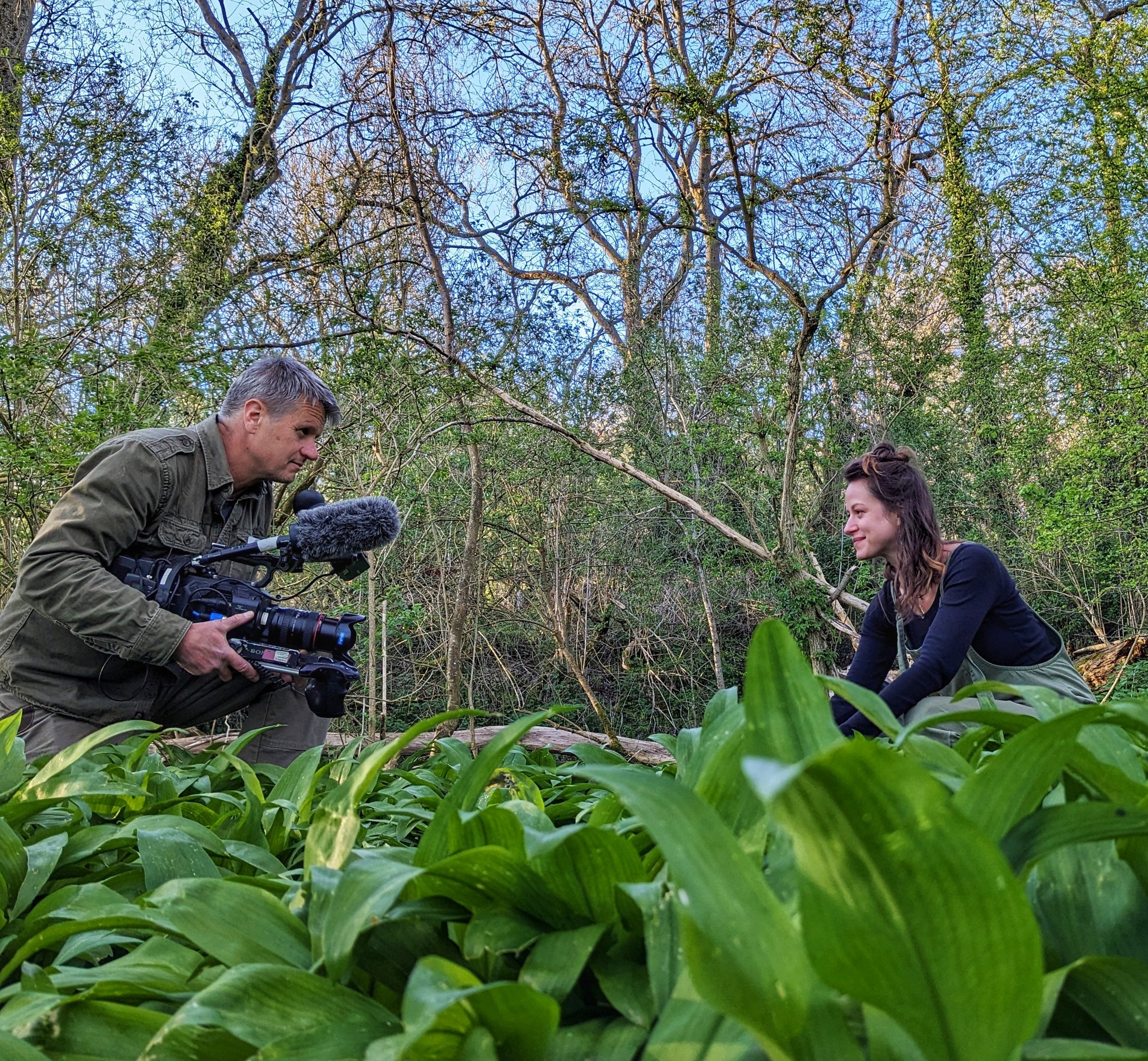Alan Tichmarsh Love your weekend - Foraging feature
Recently I was given the opportunity to appear on the Sunday morning show of a well loved national treasure, Alan Tichmarsh. The call for this came out of the blue one day when Emily, a researcher for the show, discovered me online and reached out to ask if I would like to do a short feature on foraging. And of course, I said yes! When your business is all about nature and you spend most of your time in the depths of a woodland or with your head buried in a hedgerow, you don’t really expect to be scouted out for TV.
The resurgence of foraging and nature crafts in the UK, to me, is a hopeful sign that we are collectively becoming more aware of the importance of nature for our survival and health. Facilitating foraging and nature connection workshops is my everyday activism. Empowering people to connect to the land that we so vitally depend on, for our mental and physical wellbeing, ignites a sense of stewardship and care for our environment.
For this reason it’s important that we follow best practice from the beginning, so here are some foraging essentials to protect you and nature:
Always be 100% sure of your ID before consuming anything that you forage - there are many lookalikes out there which could be the difference between a delicious meal and a very uncomfortable experience, or worse.
Be aware of contaminants. Think pollutants, herbicides, pesticides, dog urine - try to harvest from areas free from these contaminants
Harvest mindfully. It’s easy to get excited and want to take handfuls at a time, but not only are you potentially harvesting more than you bargained for, with many different species growing in amongst one another, but this method also hinders the ability of a plant to continue to grow.
Never uproot anything on public land, and always ask for permission on private land.
Take only what you need and only a fraction of what’s there, remember there are many other creatures depending on these food sources and habitats. Try to minimise the impact you have on the ecosystems you harvest from.
Foraging can be a sustainable and environmentally-friendly way to source food, as long as it's done responsibly and with consideration for the natural environment. By following best practices for sustainable foraging, we can help to maintain healthy ecosystems, reduce waste, and promote a more sustainable and regenerative approach to food production and consumption. In addition to this, foraging can:
Encourage biodiversity: When we forage for wild plants and fungi, we're encouraging biodiversity by taking part in the natural cycle of plant growth and regeneration. By selectively harvesting wild plants and fungi, we can help to prevent the overgrowth of certain species, which can disrupt the balance of local ecosystems. By promoting biodiversity, we can help to maintain a healthy and resilient natural environment.
Reduce our carbon footprint: Foraging for wild food can also help to reduce our carbon footprint. When we forage, we are reducing the need for transportation, packaging, and other resources associated with the production and distribution of food. By sourcing our food locally, we're also supporting local economies and reducing the amount of greenhouse gas emissions associated with transportation.
Promote sustainable agriculture: Foraging can also promote sustainable agriculture by encouraging the use of natural farming methods and the preservation of wild habitats. By foraging for wild food, we're promoting a more sustainable and regenerative approach to food production and consumption.
Many wild plants and fungi are edible but are often overlooked or considered weeds. By foraging for these plants, we can make use of an underutilised food and medicine resource.
If you would like to learn more about foraging and how to confidently embark on your wild food and medicine journey, join me for a walk in the Bristol/Bath area or in Llangollen, North Wales. We will dive into the identification process, delve into folklore and history and discuss recipes and preparation methods. Letting our senses guide us we will smell, touch and taste our way along. More information on guided foraging walks can be found here .

